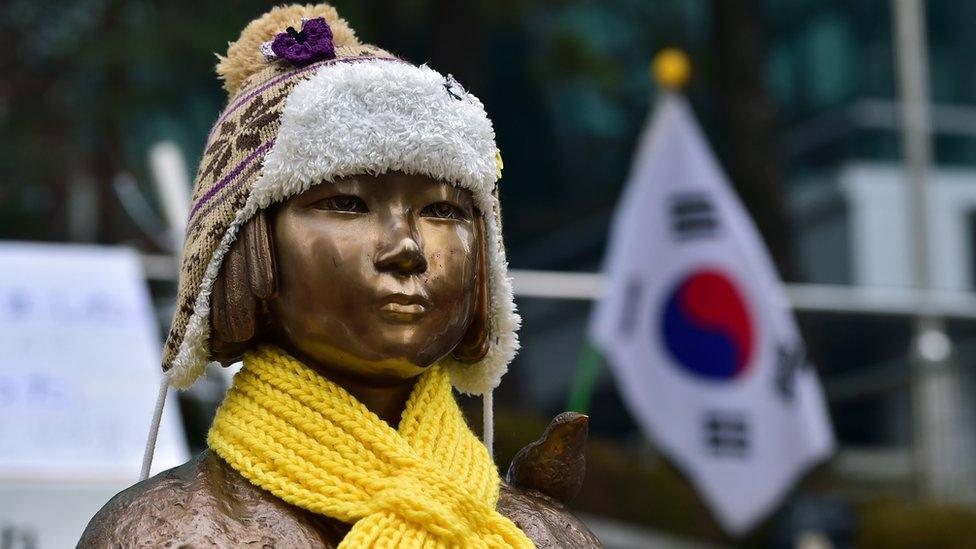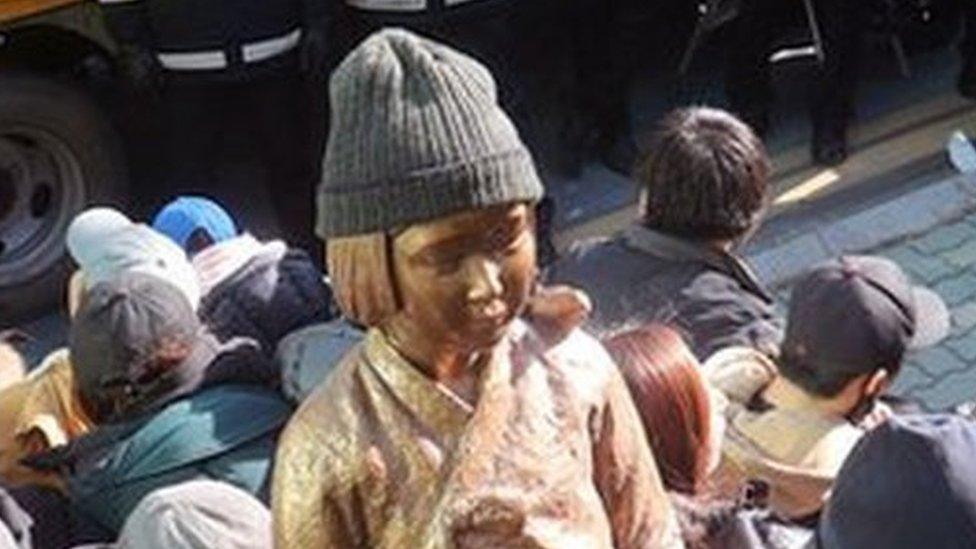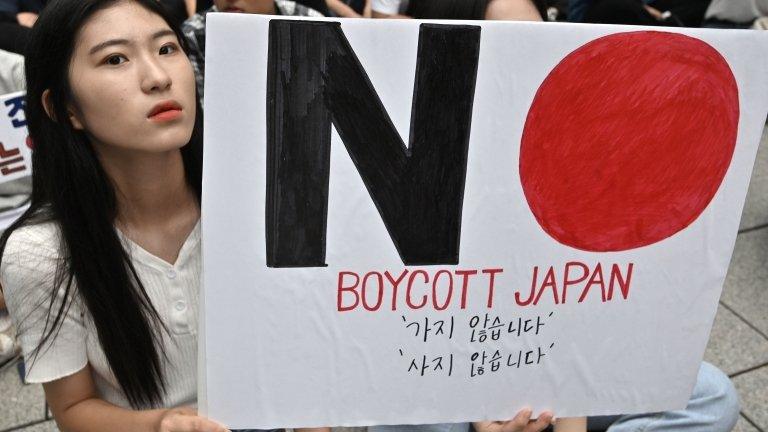Japan festival to show 'comfort women' film after backlash
- Published

A statue of a "comfort woman" pictured outside of the Japanese embassy in Seoul
A Japanese film festival will now show a documentary on forced wartime sex workers after its earlier decision to cancel the screening sparked a backlash.
The festival in Kawasaki said safety concerns had now been resolved.
Tens of thousands of so-called "comfort women" from around Asia were forced into brothels to work as sex slaves for Japan's military.
Japanese nationalists deny the women were coerced into sex work.
Earlier this year an exhibition on the issue of "comfort women" was forced to close for two months after it was threatened with arson.
What's behind the festival's u-turn?
The decision not to screen the film was reversed after "lots of voices offering cooperation to address our safety concerns", a member of the organising committee told AFP news agency.
Several directors involved in the film festival had criticised plans not to show the film. One even pulled his own film from the festival in protest.
"Shusenjo: The Main Battleground of the Comfort Women Issue" will now be shown on the last day of the festival.
Allow YouTube content?
This article contains content provided by Google YouTube. We ask for your permission before anything is loaded, as they may be using cookies and other technologies. You may want to read Google’s cookie policy, external and privacy policy, external before accepting. To view this content choose ‘accept and continue’.

However some of those who appear in the documentary have filed a lawsuit with the Tokyo District Court, demanding compensation and that the film not be shown.
They claim they agreed to be in the documentary as they thought it was part of research and not part of a film, external, the Asahi Shimbun reports.
Who were the 'comfort women'?
Historians say an estimated 200,000 women were forced to work in brothels for Japanese soldiers.
Many were Korean. Others came from China, the Philippines, Indonesia and Taiwan.
Some Japanese nationalists deny the claims, insisting that there is no documented evidence that the Japanese military was ordered to recruit women against their will.
The issue of comfort women among disputes that have led to fractious relations between Japan and its Asian neighbours.
The surviving comfort women are now in their late 80s and 90s, as Rupert Wingfield-Hayes reports
Tokyo argues that the 1965 treaty that restored diplomatic ties and provided more than $800m (£618m) in Japanese financial help to South Korea has settled the matter.
In 2015, Japan signed a deal with South Korea in another attempt to settle the matter. Japan apologised and promised to pay 1bn yen ($9.5m, £7.9m) - the amount South Korea asked for - to victims. Critics say it was reached without consultation with victims.
- Published6 January 2017

- Published2 December 2019
